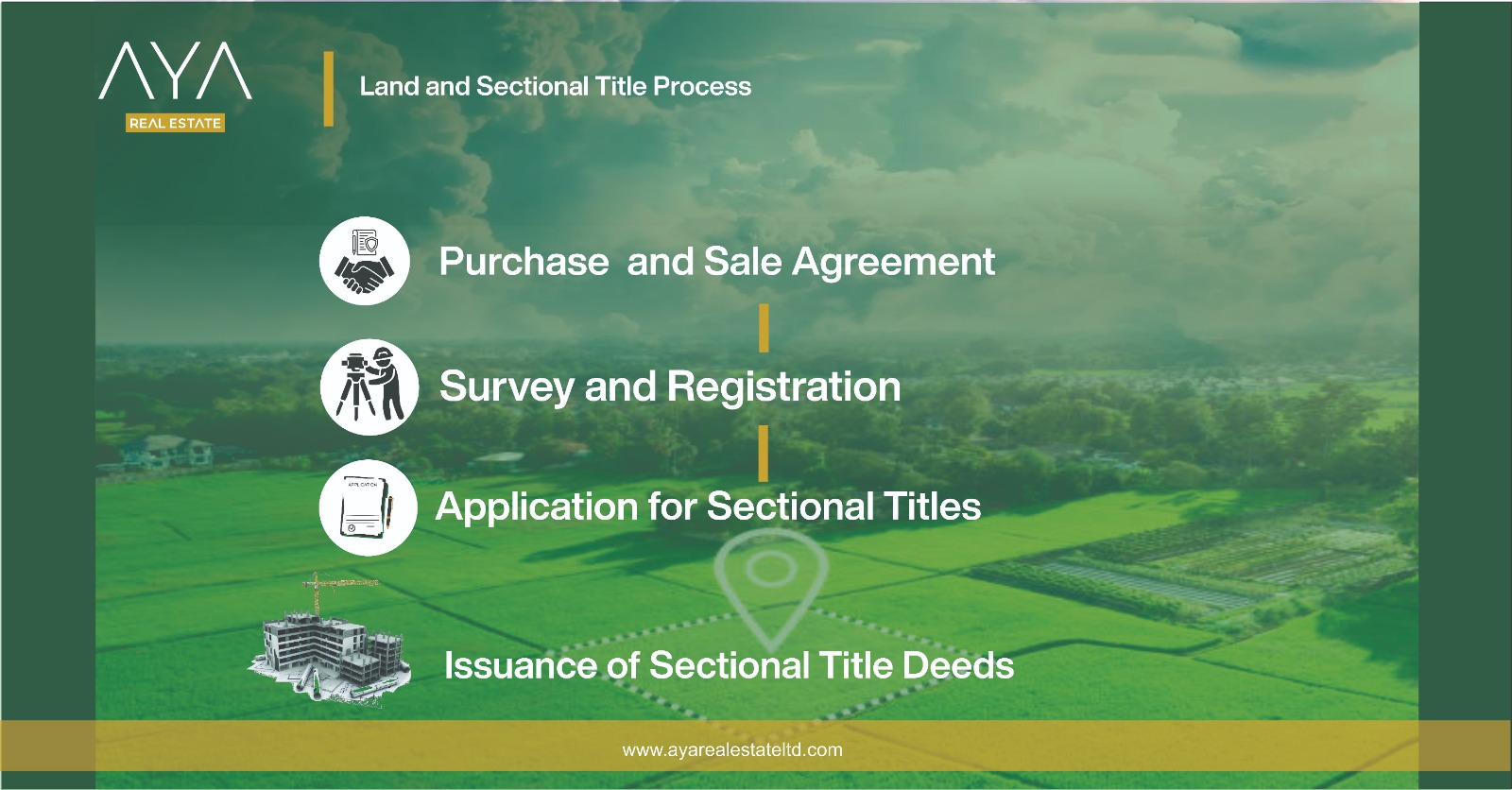
Buying property in Kenya is one of the most significant investments you can make. Whether you are a first-time homebuyer in Kenya, a seasoned real estate investor, or someone simply exploring apartments for sale in Nairobi, understanding the land and sectional title process is crucial to ensuring your ownership is legal, secure, and hassle-free.
In this guide, we break down everything you need to know about landownership and the sectional title deed process in Kenya, including what they are, how they work, and how to protect your investment.
What is Land Ownership in Kenya?
In Kenya, land is classified into three categories:
When buying private land, whether it is an apartment, piece of land, or a townhouse, you receive a title deed confirming legal ownership.
There are two main types of land ownership:
What is a Sectional Title?
A sectional title is a form of property ownership that allows an individual to own an apartment or unit in a multi-unit building (a block of flats), while sharing ownership of the common areas (e.g. elevators, parking lots, and staircases).
Sectional Properties Act (2020) regulates the legal framework for sectional ownership in Kenya.
This is especially relevant for buyers looking for:
The Sectional Title Deed Process in Kenya
1. Purchase and Sale Agreement
Once you identify your preferred unit (e.g. a 2-bedroom apartment with amenities like a gym or swimming pool), a sale agreement is signed between you and the developer or seller. Ensure a licensed real estate agent in Kenya is involved.
2. Survey and Registration
The building is surveyed, and the units are geo-referenced into sectional plans. The plans are registered with the Ministry of Lands.
3. Application for Sectional Titles
The developer applies for sectional title deeds. This replaces the mother title of the whole land parcel with individual unit titles.
Upon approval, each unit owner receives an official sectional title deed, legally confirming your ownership of the specific unit and your share in the common property.
Many buyers wrongly assume that buying an apartment comes with a title deed automatically. Without sectional title registration, you may only hold a lease or share certificate, not full ownership.
A registered sectional title deed gives you:
When buying apartments in Nairobi, these common amenities fall under shared ownership and maintenance:
This makes sectional title ownership ideal for buyers looking for luxurious and secure apartments in Kenya without owning an entire block.
1. Confirm Developer Compliance
Ensure the project is compliant with the Sectional Properties Act and that sectional plans are registered.
2. Understand Ownership Costs
Expect service charge payments for maintaining shared areas.
3. Hire Legal Experts
Always work with a property lawyer to verify documentation.
4. Ask for the Title Number
Verify that the unit has an independent title number from the Land Registry.
Sectional titles have opened up affordable homeownership and real estate investment opportunities for middle-income earners.
They’re common in:
By clarifying ownership and simplifying management, they provide buyers with more security and value; especially in places like Nairobi, Mombasa, and Kisumu.
Understanding the land and sectional title process in Kenya is not just legal due diligence, it's smart investing. As more Kenyans turn to apartments and off-plan homes, sectional title deeds are the future of secure and transparent ownership.
Whether you’re buying your first home or adding to your investment portfolio, make sure your apartment comes with a sectional title. It’s your proof of ownership, your key to resale value, and your shield against disputes.
At AYA Real Estate, we help you navigate Kenya’s property market with clarity and confidence. From off-plan apartments in Nairobi to fully serviced modern units with gyms, elevators, and ample parking. We guide you every step of the way.
Contact AYA today for site visits, title verification, or to book your next apartment.
Let’s make homeownership easier, safer, and smarter.
Let’s get you started.
Call us today or DM to schedule a site visit.
Call: 0114 000 444/ 0752 000 444
Email: info@ayarealestateltd.com
Visit: www.ayarealestateltd.com